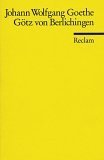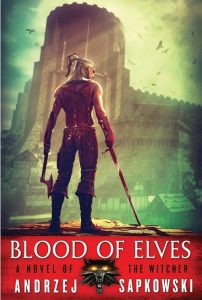Title: Götz von Berlichingen
Author: Johann Wolfgang von Goethe
First published January 1, 1773
128 pages, Paperback
ISBN: 9783150000717 (ISBN10: 3150000718)
Rating: 3.3
Overview
Johann Wolfgang von Goethe’s “Götz von Berlichingen” is a historical drama that portrays the fragmentation of the German Empire in the early modern era. The play is based on the autobiography of Reichsritter Götz von Berlichingen, published in 1731.
It tells the story of Götz, a knight who struggles to reconcile his personal and public fate against the backdrop of a fragmented society. Goethe’s work broke from classical conventions by constantly changing the setting of the play in more than fifty individual scenes.
The play is also notable for its portrayal of characters from different social strata and institutions through their unique language and expression. Dive into this masterpiece and experience the radical upheaval of classical conventions that made “Götz von Berlichingen” a defining work of the Sturm und Drang movement.
About the Author
Johann Wolfgang von Goethe was a German writer and scientist who excelled in poetry, drama, and the novel. He devoted 50 years to his two-part dramatic poem Faust, which was published in 1808 and 1832.
In addition to his literary pursuits, Goethe conducted scientific research in various fields, with a particular focus on botany, and held several governmental positions.
George Eliot referred to Goethe as “Germany’s greatest man of letters” and the last true polymath to walk the earth. His works spanned across literature, theology, and humanism, with Faust being considered one of the peaks of world literature.
He also wrote numerous poems and an epistolary novel.
Goethe was a key figure of German literature and was associated with several literary movements, including Weimar classicism, Enlightenment, sentimentality, Sturm und Drang, and Romanticism. He influenced Darwin with his focus on plant morphology and served as the privy councilor (“Geheimrat”) of the duchy of Weimar.
Goethe had a keen interest in literature from various countries, including England, France, Italy, classical Greece, Persia, and Arabia. He originated the concept of Weltliteratur (“world literature”).
Despite his significant influence on German philosophy, he refrained from practicing philosophy in a rarefied sense.
Goethe’s influence spread across Europe, inspiring music, drama, poetry, and philosophy for the next century. He is considered one of the most important writers in the German language and one of the most important thinkers in western culture.
Early in his career, he was interested in painting, and late in his life, he expressed the expectation that people would ultimately remember his work in optics.
Editoral Review
Gtz von Berlichingen by Johann Wolfgang von Goethe is a captivating work of literature that has endured for centuries. First published in 1773, the book is a masterpiece of the German Sturm und Drang movement, a literary genre that emerged in the late 18th century and focused on intense emotions, individualism, and rebellion against social norms.
Set in medieval Germany, Gtz von Berlichingen tells the story of a charismatic and rebellious knight who refuses to bow to authority and fights for his dignity and freedom. Gtz is a complex character who embodies the spirit of the Sturm und Drang movement, challenging the oppressive and unjust social order of his time.
Through his struggles and triumphs, Goethe offers a powerful critique of the feudal system and its arbitrary rules. The book is notable not only for its literary merit but also for its historical significance.
Gtz von Berlichingen is considered one of the earliest examples of German national literature and a symbol of resistance against the absolutist rule of the Holy Roman Empire. The character of Gtz has become a legend in German folklore, inspiring countless artists, writers, and revolutionaries over the centuries.
Goethe’s writing style in Gtz von Berlichingen is elegant and poetic, blending vivid descriptions of nature and landscapes with richly drawn characters and intense action scenes. The book’s pacing is masterful, with moments of tension and drama interspersed with lyrical passages of reflection and meditation.
Goethe’s ability to capture the nuances of human emotion and psychology is particularly impressive, as he takes the reader deep into the psyche of his characters and explores the existential dilemmas they face. However, the book is not without its flaws.
Some readers might find the language archaic and difficult to follow at times, particularly if they are not familiar with the conventions of 18th-century German literature. The plot can also be convoluted at times, with numerous subplots and secondary characters that can be hard to keep track of.
Overall, Gtz von Berlichingen is a timeless masterpiece of German literature that will appeal to readers who enjoy historical fiction, epic poetry, and philosophical musings on the human condition. It is a book that speaks to our current political and social climate, where the struggle for individual freedom and dignity remains a pressing concern.
I would highly recommend it to anyone who wants to explore the rich cultural heritage of Germany and its contribution to the canon of world literature. Rating: 4.5 out of 5 stars.



